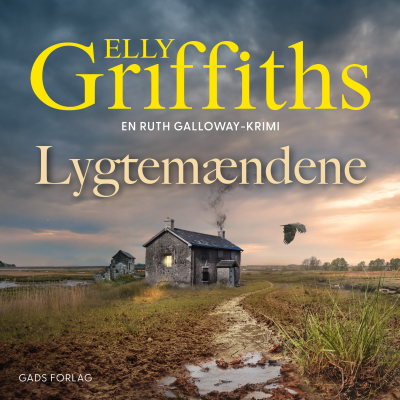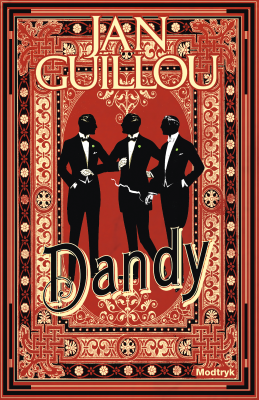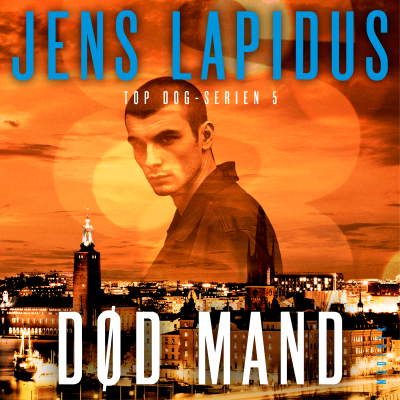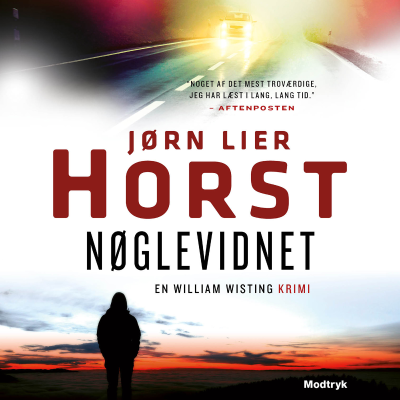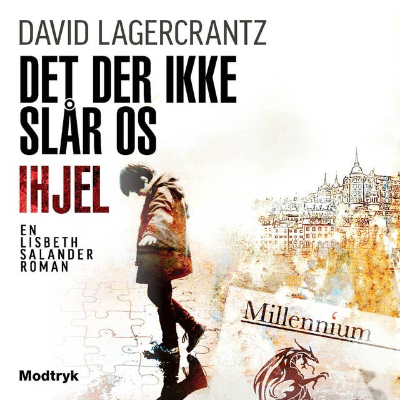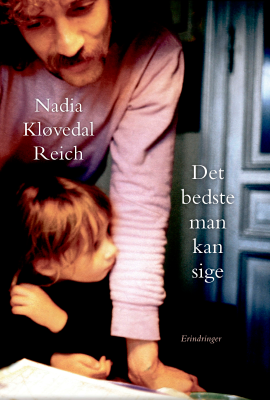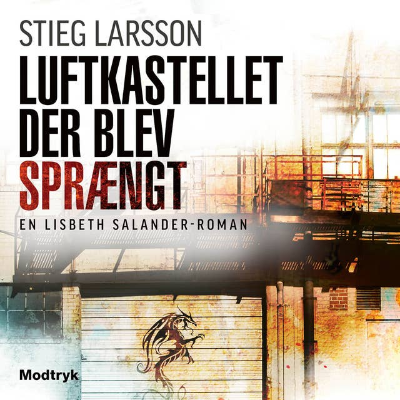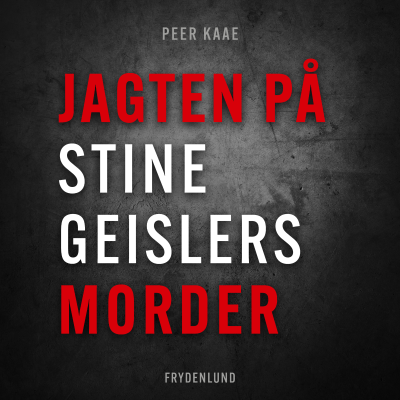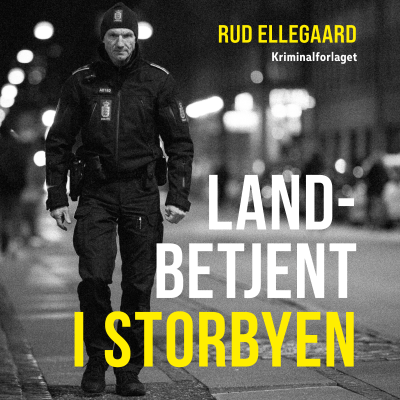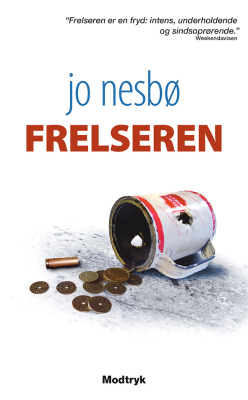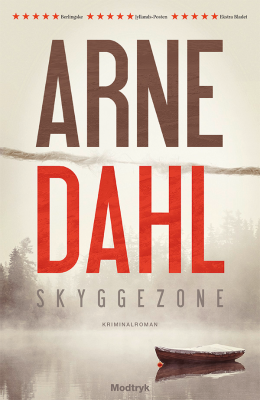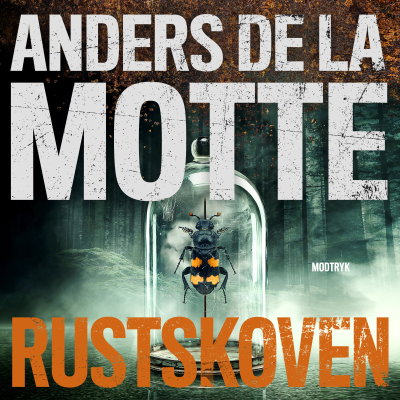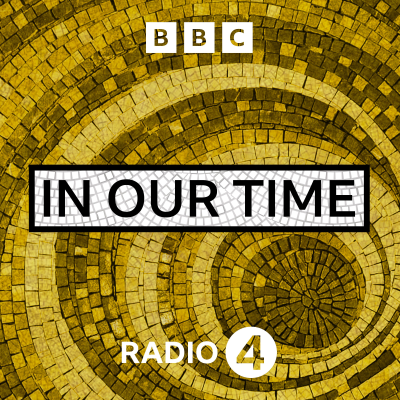
In Our Time
Podcast by BBC Radio 4
Spanning history, religion, culture, science and philosophy, In Our Time from BBC Radio 4 is essential listening for the intellectually curious. In each episode, host Melvyn Bragg and expert guests explore the characters, events and discoveries that have shaped our world. History fans can learn about pivotal wars and societal upheavals, such as the rise and fall of Napoleon, the Sack of Rome in 1527, and the political intrigue of the Russian Revolution. Those fascinated by the lives of kings and queens can journey to Versailles to meet Marie Antoinette and Louis XIV the Sun King, or to Ancient Egypt to meet Cleopatra and Nerfertiti. Or perhaps you’re looking to explore the history of religion, from Buddhism’s early teachings to the Protestant Reformation. If you’re interested in the stories behind iconic works of art, music and literature, dive in to discussions on the artistic genius of Michelangelo's Sistine Chapel and Van Gogh’s famous Sunflowers. From Gothic architecture to the works of Shakespeare, each episode of In Our Time offers new insight into humanity’s cultural achievements. Those looking to enrich their scientific knowledge can hear episodes on black holes, the Periodic Table, and classical theories of gravity, motion, evolution and relativity. Learn how the discovery of penicillin revolutionised medicine, and how the death of stars can lead to the formation of new planets. Lovers of philosophy will find episodes on the big issues that define existence, from free will and ethics, to liberty and justice. In what ways did celebrated philosophers such as Mary Wollstonecraft and Karl Marx push forward radical new ideas? How has the concept of karma evolved from the ancient Sanskrit texts of Hinduism to today? What was Plato’s concept of an ideal republic, and how did he explore this through the legend of the lost city of Atlantis? In Our Time celebrates the pursuit of knowledge and the enduring power of ideas.
Limited Offer
3 months for 9,00 kr.
Then 99,00 kr. / monthCancel anytime.
All episodes
1158 episodesEver since Franz Anton Mesmer induced trance-like states in his Parisian subjects in the late eighteenth century, dressed in long purple robes, hypnosis has been associated with performance, power and the occult. It has exerted a powerful hold over the cultural imagination, featuring in novels and films including Bram Stoker’s Dracula and George du Maurier’s Trilby - and it was even practiced by Charles Dickens himself. But despite some debate within the medical establishment about the scientific validity of hypnosis, it continues to be used today as a successful treatment for physical and psychological conditions. Scientists are also using hypnosis to learn more about the power of suggestion and belief. With: Catherine Wynne, Reader in Victorian and Early Twentieth-Century Literature and Visual Cultures at the University of Hull Devin Terhune, Reader in Experimental Psychology at King’s College London And Quinton Deeley, Consultant Neuropsychiatrist at the South London and Maudsley NHS Foundation Trust, and Senior Lecturer at the Institute of Psychiatry, Psychology and Neuroscience at King’s College London, where he leads the Cultural and Social Neuroscience Research Group. Producer: Eliane Glaser Reading list: Henri F. Ellenberger, The Discovery of the Unconscious: The History and Evolution of Dynamic Psychiatry (Vol. 1, Basic Books, 1970) William Hughes, That Devil’s Trick: Hypnotism and the Victorian Popular Imagination (Manchester University Press, 2015) Asti Hustvedt, Medical Muses: Hysteria in Nineteenth-Century Paris (Bloomsbury, 2011) Fred Kaplan, Dickens and Mesmerism: The Hidden Springs of Fiction (first published 1975; Princeton University Press, 2017) Wendy Moore, The Mesmerist: The Society Doctor Who Held Victorian London Spellbound (Weidenfeld and Nicolson, 2017) Michael R. Nash and Amanda J. Barnier (eds.), The Oxford Handbook of Hypnosis Theory, Research, and Practice (Oxford University Press, 2012) Judith Pintar and Steven Jay Lynn, Hypnosis: A Brief History (John Wiley & Sons, 2008) Amir Raz, The Suggestible Brain: The Science and Magic of How We Make Up Our Minds (Balance, 2024) Robin Waterfield, Hidden Depths: The Story of Hypnosis (Pan, 2004) Alison Winter, Mesmerized: Powers of Mind in Victorian Britain (Chicago University Press, 1998) Fiction: Thomas Mann, Mario and the Magician: & other stories (first published 1930; Vintage Classics, 1996) George du Maurier, Trilby (first published 1894; Penguin Classics, 1994) Bram Stoker, Dracula (first published 1897; Penguin Classics, 2003) In Our Time is a BBC Studios Audio production
Melvyn Bragg and guests discuss the life and role of one of the most significant figures in early 20th Century German history. Paul von Hindenburg (1847-1934) had been famous since 1914 as the victorious commander at the Battle of Tannenberg against Russian invaders, soon burnishing this fame on the Western Front and Hindenburg was to claim he would have won there too, if enemies at home had not 'stabbed Germany in the back'. He won Germany’s Presidential election twice during the Weimar Republic, as a candidate of national unity and, while he gained his second term as a ‘stop Hitler’ candidate, President Hindenburg was to appoint Hitler as Chancellor and transfer some of his charisma onto him – a move so disastrous that Germans were later to ask if the myth of Hindenburg had always been an illusion. With Anna von der Goltz Professor of History at Georgetown University, Washington DC Chris Clark Regius Professor of History at the University of Cambridge And Colin Storer Associate Professor in Modern European History at the University of Warwick Producer: Simon Tillotson Reading list: William J. Astore and Dennis E. Showalter, Hindenburg: Icon of German Militarism (Potomac Books, 2005) Benjamin Carter Hett, The Death of Democracy: Hitler's Rise to Power (William Heinemann, 2018) Andreas Dorpalen, Hindenburg and the Weimar Republic (first published 1964; Princeton University Press, 2016) Jürgen W. Falter, 'The Two Hindenburg Elections of 1925 and 1932: A Total Reversal of Voter Coalitions' (Central European History, 32/2, 1990) Peter Fritzsche, 'Presidential Victory and Popular Festivity in Weimar Germany: Hindenburg's 1925 Election' (Central European History, 32/2, 1990) Larry Eugene Jones, Hitler Versus Hindenburg: The 1932 Presidential Elections and the End of the Weimar Republic (Cambridge University Press, 2016) Martin Kitchen, The Silent Dictatorship: The Politics of the German High Command under Hindenburg and Ludendorff, 1916-1918 (first published 1976; Routledge, 2021) John Lee, The Warlords: Hindenburg and Ludendorff (Weidenfeld & Nicolson, 2005) Frank McDonough, The Weimar Years: Rise and Fall, 1918-1933 (Apollo, 2023) Nadine Rossol and Benjamin Ziemann (eds.), The Oxford Handbook of the Weimar Republic (Oxford University Press, 2022) Richard Scully, 'Hindenburg: The Cartoon Titan of the Weimar Republic, 1918-1934' (German Studies Review, 35/3, 2012) Colin Storer, A Short History of the Weimar Republic (Revised Edition, Bloomsbury, 2024) Anna von der Goltz, Hindenburg: Power, Myth and the Rise of the Nazis (Oxford University Press, 2009) Alexander Watson, Ring of Steel: Germany and Austria-Hungary at War, 1914-1918 (Penguin, 2015) J. W. Wheeler-Bennett, Hindenburg: The Wooden Titan (first published 1936; Macmillan, 1967) In Our Time is a BBC Studios Audio Production
In 1710, the British Parliament passed a piece of legislation entitled An Act for the Encouragement of Learning. It became known as the Statute of Anne, and it was the world’s first copyright law. Copyright protects and regulates a piece of work - whether that's a book, a painting, a piece of music or a software programme. It emerged as a way of balancing the interests of authors, artists, publishers, and the public in the context of evolving technologies and the rise of mechanical reproduction. Writers and artists such as Alexander Pope, William Hogarth and Charles Dickens became involved in heated debates about ownership and originality that continue to this day - especially with the emergence of artificial intelligence. With: Lionel Bently, Herchel Smith Professor of Intellectual Property Law at the University of Cambridge Will Slauter, Professor of History at Sorbonne University, Paris Katie McGettigan, Senior Lecturer in American Literature at Royal Holloway, University of London. Producer: Eliane Glaser Reading list: Isabella Alexander, Copyright Law and the Public Interest in the Nineteenth Century (Hart Publishing, 2010) Isabella Alexander and H. Tomás Gómez-Arostegui (eds), Research Handbook on the History of Copyright Law (Edward Elgar Publishing, 2016) David Bellos and Alexandre Montagu, Who Owns this Sentence? A History of Copyrights and Wrongs (Mountain Leopard Press, 2024) Oren Bracha, Owning Ideas: The Intellectual Origins of American Intellectual Property, 1790-1909 (Cambridge University Press, 2016) Elena Cooper, Art and Modern Copyright: The Contested Image (Cambridge University Press, 2018) Ronan Deazley, On the Origin of the Right to Copy: Charting the Movement of Copyright Law in Eighteenth Century Britain, 1695–1775 (Hart Publishing, 2004) Ronan Deazley, Rethinking Copyright: History, Theory, Language (Edward Elgar Publishing, 2006) Ronan Deazley, Martin Kretschmer and Lionel Bently (eds.), Privilege and Property: Essays on the History of Copyright (Open Book Publishers, 2010) Marie-Stéphanie Delamaire and Will Slauter (eds.), Circulation and Control: Artistic Culture and Intellectual Property in the Nineteenth Century (Open Book Publishers, 2021) Melissa Homestead, American Women Authors and Literary Property, 1822-1869 (Cambridge University Press, 2005) Adrian Johns, Piracy: The Intellectual Property Wars from Gutenberg to Gates (University of Chicago Press, 2009) Meredith L. McGill, American Literature and the Culture of Reprinting, 1834-1853 (University of Pennsylvania Press, 2002) Mark Rose, Authors and Owners: The Invention of Copyright (Harvard University Press, 1993) Mark Rose, Authors in Court: Scenes from the Theater of Copyright (Harvard University Press, 2018) Catherine Seville, Internationalisation of Copyright: Books, Buccaneers and the Black Flag in the Nineteenth Century (Cambridge University Press, 2006) Brad Sherman and Lionel Bently, The Making of Modern Intellectual Property Law (Cambridge University Press, 1999) Will Slauter, Who Owns the News? A History of Copyright (Stanford University Press, 2019) Robert Spoo, Without Copyrights: Piracy, Publishing and the Public Domain (Oxford University Press, 2013) In Our Time is a BBC Studios Audio production
Melvyn Bragg and guests discuss the decisive role of one of the great 20th Century physicists in solving the question of nuclear fission. It is said that Meitner (1878-1968) made this breakthrough over Christmas 1938 while she was sitting on a log in Sweden during a snowy walk with her nephew Otto Frisch (1904-79). Both were Jewish-Austrian refugees who had only recently escaped from Nazi Germany. Others had already broken uranium into the smaller atom barium, but could not explain what they found; was the larger atom bursting, or the smaller atom being chipped off or was something else happening? They turned to Meitner. She, with Frisch, deduced the nucleus really was splitting like a drop of water into a dumbbell shape, with the electrical charges at each end forcing the divide, something previously thought impossible, and they named this ‘fission’. This was a crucial breakthrough for which Meitner was eventually widely recognised if not at first. With Jess Wade A Royal Society University Research Fellow and Lecturer in Functional Materials at Imperial College, London Frank Close Professor Emeritus of Theoretical Physics and Fellow Emeritus at Exeter College, University of Oxford And Steven Bramwell Director of the London Centre for Nanotechnology and Professor of Physics at University College London Producer: Simon Tillotson Reading list: Frank Close, Destroyer of Worlds: The Deep History of the Nuclear Age, 1895-1965 (Allen Lane, 2025) Ruth Lewin Sime, Lise Meitner: A Life in Physics (University of California Press, 1996) Marissa Moss, The Woman Who Split the Atom: The Life of Lise Meitner (Abrams Books, 2022) Patricia Rife, Lise Meitner and the Dawn of the Nuclear Age (Birkhauser Verlag, 1999) In Our Time is a BBC Studios Audio Production
Melvyn Bragg and guests discuss Korea's brief but significant period as an empire as it moved from the 500-year-old dynastic Joseon monarchy towards modernity. It was in October 1897 that King Gojong declared himself Emperor, seizing his chance when the once-dominant China lost to Japan in the First Sino-Japanese War. The king wanted to have the same status as the neighbouring Russian, Chinese and Japanese Emperors, to shore up a bid for Korean independence and sovereignty when the world’s major powers either wanted to open Korea up to trade or to colonise it. The Korean Empire lasted only thirteen years, yet it was a time of great transformation for this state and the whole region with lasting consequences in the next century… With Nuri Kim Associate Professor in Korean Studies at the faculty of Asian and Middle Eastern Studies at the University of Cambridge and Fellow of Wolfson College Holly Stephens Lecturer in Japanese and Korean Studies at the University of Edinburgh And Derek Kramer Lecturer in Korean Studies at the University of Sheffield Producer: Simon Tillotson Reading list: Isabella Bird Bishop, Korea and her Neighbors: A Narrative of Travel, With an Account of the Recent Vicissitudes and Present Position of the Country (first published 1898; Forgotten Books, 2019) Vipan Chandra, Imperialism, Resistance and Reform in Late Nineteenth-Century Korea: Enlightenment and the Independence Club (University of California, Institute of East Asian Studies, 1988) Peter Duus, The Abacus and the Sword: The Japanese Penetration of Korea, 1859-1910 (University of California Press, 1995) Carter J. Eckert, Offspring of Empire: The Koch'ang Kims and the Colonial Origins of Korean Capitalism, 1876–1910 (University of Washington Press, 1991) George L. Kallander, Salvation through Dissent: Tonghak Heterodoxy and Early Modern Korea (University of Hawaii Press, 2013) Kim Dong-no, John B. Duncan and Kim Do-hyung (eds.), Reform and Modernity in the Taehan Empire (Jimoondang, 2006) Kirk W. Larsen, Tradition, Treaties, and Trade: Qing Imperialism and Chosŏn Korea, 1850-1910 (Harvard University Asia Center, 2008) Yumi Moon, Populist Collaborators: The Ilchinhoe and the Japanese Colonization of Korea, 1896-1910 (Cornell University Press, 2013) Sung-Deuk Oak, The Making of Korean Christianity: Protestant Encounters with Korean Religions, 1876-1915 (Baylor University Press, 2013) Eugene T. Park, A Family of No Prominence: The Descendants of Pak Tŏkhwa and the Birth of Modern Korea (Stanford University Press, 2020) Michael E. Robinson, Korea’s Twentieth-Century Odyssey: A Short History (University of Hawaii Press, 2007) Andre Schmid, Korea Between Empires, 1895-1919 (Columbia University Press, 2002) Vladimir Tikhonov, Social Darwinism and Nationalism in Korea: The Beginnings, 1880s-1910s (Brill, 2010) In Our Time is a BBC Studios Audio Production
Limited Offer
3 months for 9,00 kr.
Then 99,00 kr. / monthCancel anytime.
Exclusive podcasts
Ad free
Non-Podimo podcasts
Audiobooks
20 hours / month










